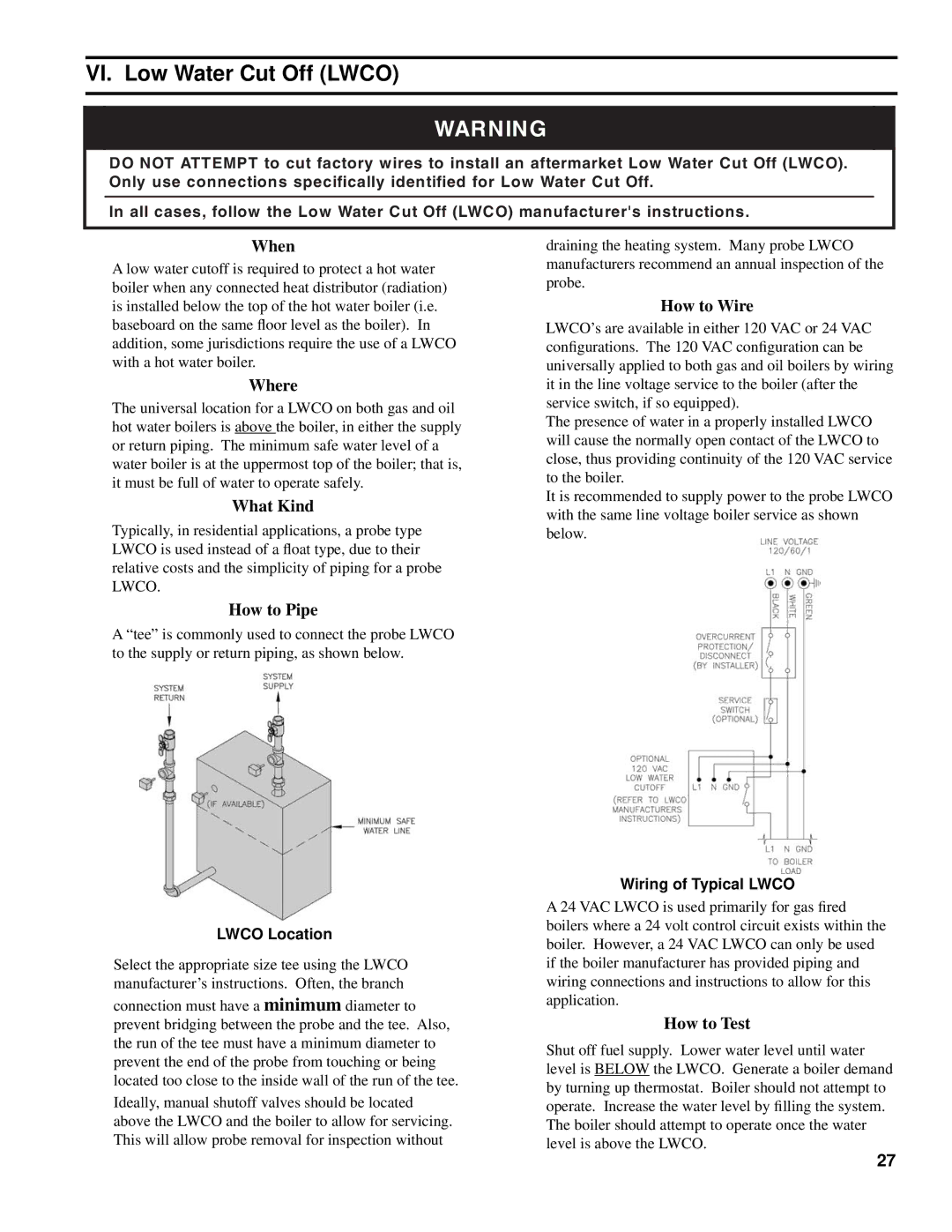SM-6 specifications
The Burnham SM-6 is a high-performance modular boiler designed for commercial and industrial applications. Known for its efficiency and reliability, the SM-6 is engineered to meet a wide range of heating demands while maintaining low operational costs.One of the standout features of the SM-6 is its modular design. This allows for scalable installations, catering to varying heating needs without requiring extensive modifications. The boiler can operate independently or in conjunction with other units, providing flexibility that is essential for industries with fluctuating demands.
In terms of technology, the Burnham SM-6 utilizes advanced combustion technology to achieve high efficiency rates. The unit typically operates with a stellar thermal efficiency of around 85% to 90%, minimizing fuel consumption and reducing greenhouse gas emissions. The incorporation of electronic ignition further helps in conserving energy, as it eliminates the need for a standing pilot light.
The SM-6 is made from high-quality materials designed for durability and long service life. The heat exchanger is constructed with durable steel, enabling it to withstand high temperatures and pressures. This robust construction ensures reliability in demanding environments, mitigating the risk of breakdowns and enhancing overall productivity.
Another key characteristic of the Burnham SM-6 is its user-friendly control system. The boiler is equipped with a state-of-the-art control panel that provides operators with real-time data on performance metrics. This allows for proactive maintenance and performance optimization, enhancing the overall operational efficiency of the system.
Safety is also a paramount consideration in the design of the SM-6. It includes multiple safety features, such as pressure relief valves and electronic safety checks, to prevent dangerous operating conditions. These features ensure that the boiler can run safely over extended periods, providing peace of mind for facility managers.
In conclusion, the Burnham SM-6 boiler stands out in the market for its modular design, high efficiency, durable construction, and advanced control technologies. Its versatile nature makes it an excellent choice for various applications, from manufacturing facilities to commercial buildings, ensuring it meets the heating requirements of diverse industries effectively. The combination of efficiency, reliability, and safety solidifies the Burnham SM-6 as a leading solution in the realm of heating systems.

